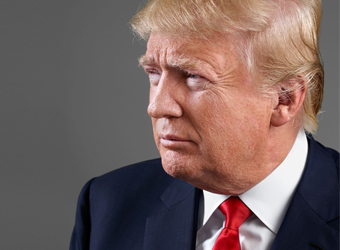U.S. President Donald Trump’s new administration risks setting off a round of potentially destabilizing trade tensions if China is named a currency manipulator, economists and currency strategists told CNBC.
Still, the majority of respondents to a CNBC survey — 25 out of 35 — said they don’t believe Trump will officially say China is deliberately devaluing its currency for an export advantage when the Treasury reviews its monitoring list in April.
“It is possible that the U.S. could still call China an FX manipulator unilaterally,” said Claudio Piron, co-head of Asia fixed income and FX strategy at Bank of America Merrill Lynch. “But, given that President Trump has already failed to do this on ‘day one’ of his administration as outlined in his campaign, this seems unlikely,” Piron added.
In total, 10 respondents, including former Bank of Japan board member Sayuri Shirai, didn’t rule out a Trump pronouncement.
“I cannot imagine Trump will not do anything,” Shirai told CNBC. “Trump has said he would deal with manipulators within a short time span, and he could follow-up on his campaign pledge.”
Turning that campaign promise into action may raise the stakes in an already tense debate on protectionism and trade, clouding the outlook for the global economy.
“We think he will follow through in April,” said Tim Cooper, Global Economic Strategist at BMI Research. “China does not fully meet the traditional criteria of a currency manipulator. But it would set the tone for what we expect will be fraught bilateral negotiations that will probably result in at least some targeted protectionist measures from both sides.”
President Donald Trump’s new administration risks setting off a round of potentially destabilizing trade tensions if China is named a currency manipulator, economists and currency strategists told CNBC.
Still, the majority of respondents to a CNBC survey — 25 out of 35 — said they don’t believe Trump will officially say China is deliberately devaluing its currency for an export advantage when the Treasury reviews its monitoring list in April.
“It is possible that the U.S. could still call China an FX manipulator unilaterally,” said Claudio Piron, co-head of Asia fixed income and FX strategy at Bank of America Merrill Lynch. “But, given that President Trump has already failed to do this on ‘day one’ of his administration as outlined in his campaign, this seems unlikely,” Piron added.
In total, 10 respondents, including former Bank of Japan board member Sayuri Shirai, didn’t rule out a Trump pronouncement.
“I cannot imagine Trump will not do anything,” Shirai told CNBC. “Trump has said he would deal with manipulators within a short time span, and he could follow-up on his campaign pledge.”
Turning that campaign promise into action may raise the stakes in an already tense debate on protectionism and trade, clouding the outlook for the global economy.
“We think he will follow through in April,” said Tim Cooper, Global Economic Strategist at BMI Research. “China does not fully meet the traditional criteria of a currency manipulator. But it would set the tone for what we expect will be fraught bilateral negotiations that will probably result in at least some targeted protectionist measures from both sides.”
Survey respondents said the Chinese yuan will continue to depreciate, with the median of 32 forecasts predicting the currency will drop to 7.2 against the U.S. dollar by the end of 2017. Within the survey, the bounds were predictions of 6.85 and 8.5 dollar/yuan.
Some explained currency expectations as an inevitable response to the White House.
“Asian countries running a trade surplus with the U.S. will try to engineer a stronger currency to diffuse Washington’s arguments,” said Adrian Mowat, chief Asian and emerging markets strategist at JPMorgan.
“It might be prudent for China to flat-line the currency just to avoid waving a red flag at the bull,” added Richard Jerram, Chief Economist at Bank of Singapore. “I take the view that if they tighten capital controls enough then they can have whatever exchange rate they want. Given that growth in China looks okay, they might decide that a stable currency is the path of least resistance.”
Source: CNBC


